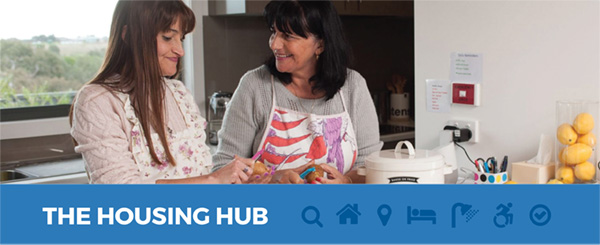The Commonwealth Government’s 2018 Budget has let the momentum slide on affordable housing.
While the 2017 Federal Budget laid the foundations for real improvements in affordable housing this year’s budget fails to follow through.
This budget focuses on tax reform, infrastructure investments, improving security, and the digital economy. The tax reforms are unlikely to impact on many community housing tenants but will provide some assistance to those in affordable housing: from 2018-19, an increase to the Low Income Tax Offset will deliver around $530 pa to 10 million low and moderate income earners. From July 2024, the 37 per cent tax scale will be abolished and only 6 per cent of the population with income over $200,000 will pay the highest marginal tax rate (45 per cent).
There is an additional $24.5 billion for infrastructure initiatives on top of the $75b announced in the last budget – no mention of housing, this is all roads, rail, ports and air infrastructure, and $1b to fix congestion in cities.
Major sector-specific measures:
The major measures focussed on the social and affordable housing sector in this year’s budget are:
• $550m over five years under a new Bilateral Agreement to improve Indigenous Housing in Northern Territory (already announced); and
• extra funding to improve the condition of public housing in the Northern Territory, including asbestos removal
• a related measure will provide $259.6m in 2017-18 to the NT government to offset GST reductions, so it can improve services in remote communities.
Minister Scullion’s Press Release advises that the government is in negotiations with the Queensland, South Australian and Western Australian governments ‘about future Commonwealth investment [in housing] in those jurisdictions’.
Minor sector-specific measures:
National Regulatory Scheme for Community Housing (NRSCH) will be funded $1.1m over 2017-18 and 2018-19 towards the evaluation of the NRSCH.
Australian Housing & Urban Research Institute (AHURI) will receive $5.5m/three years to continue the national housing research program.
The Australian Bureau of Statistics will receive $4.9m/four years to improve data collection of affordable housing stock estimates, planning and zoning activity, and dwelling construction cost. (This looks like the input to a National Housing Supply Council some time in the future.)
The Australian Institute of Health and Welfare (AIHW) will receive $0.2m in 2018-19 to improve its user interface for housing and homelessness data collections.
Broader housing-related measures:
The Australian Securities and Investments Commission (ASIC) will get an undisclosed amount to set up North Queensland Home Insurance Comparison website to help home owners compare premiums.
The Western Sydney City Deal will be funded $125m/five years to support infrastructure projects and liveability, including $15m for planning reforms to support housing supply in Western Sydney (this is redirected money from uncommitted funding, not new money).
Other matters:
Wage growth is expected to pick up in the broader economy to 3 per cent pa in 2019-20 (the increases under Social, Community, Home Care and Disability Services Award are phasing in until 2021). Inflation is projected to increase from 2.25 per cent in 2017-18 to 3.25 per cent in 2019-20. These movements may impact on Community Housing Providers operating costs.
There are some changes to income support arrangements that may have a minor impact on sector rental cash flows.
These include:
• the black economy taskforce response gets another $12.3m over four years – potentially impacting on some social housing tenants’ income declarations
• to encourage ‘lawful behaviour’ among income support recipients, the Commonwealth will be able to compulsorily deduct court-imposed fines and suspend/cancel welfare payments to people with outstanding warrants. How this will impact on tenants with Centrepay deductions is unknown. This may require renegotiation of rental payments for some tenants.
• pensioners will be able to earn up to $300pf (up from $250), without affecting their pension
• employment programs:
– jobs and skills for mature age Australians – $189.7m/five years
– transition to work – $80m/four years to support 40,000 young people aged 15-21 who are at risk of long-term unemployment
– the Community Development Program will ‘redirect $1.1b/five years to improve employment outcomes in remote areas’, including through 6,000 employment subsidies.
The following measures may impact on some CHPs:
Disability and Carers
• the National Disability Insurance Scheme (NDIS) is to be fully funded
• the NDIS Jobs and Market Fund – $64.3m/four years to help disability service providers take advantage of NDIS opportunities
• an additional $9.9m over two years will help Disability Employment Providers transition to the NDIS
• $92.1m/five years to ensure continuity of support for people who are not transitioning to the NDIS but are getting services under programs that are transitioning to the NDIS (programs not named)
• carer coordination – $113m/five years for Integrated Carer Support Services to help carers navigate the system through a new Carer gateway – an income test will be introduced for the Carer Allowance, with the carer and their partner required to have a combined income of less than $250,000 pa.
Older Australians
More Choices for a Longer Life – a package of measures for older Australians, including:
• 14,000 high-level care packages (on top of 6,000 already announced)
• 13,500 residential age care places
• $40m in capital grants for aged care facilities in regional and remote areas
• several measures focusing on quality of care, including an extra $8.8m to improve transparency of information on aged care provider quality
• more money for mental health services for older Australians
• $22.9m/two years to encourage older Australians to take part in physical activity.
Abstudy – $38.1m/five years will improve Abstudy payments, including providing boarding payments to kids under 16 getting Abstudy Living Allowance, more flexible travel arrangements and relaxed rules about which schools kids can attend.
Stronger Communities Round 4 – $25.9m/two years for small capital projects ($2,500-$25,000) that deliver benefits for local communities (redirected funds, not new money).
Building Better Regions Fund Round 3 – $206.5m/four years for investment in community infrastructure and capacity building projects in regional areas. [Note, some CHPs have accessed BBR funding from previous rounds to support mature age housing).
There are also some institutional reforms that may impact on how CHPs operate, for instance:
Australian Charities and Not for Profit Commission – $1m in 2018-19 to respond to ‘anticipated litigation’ as it pursues its role of regulating charities and charity registration
Consumer Data Rights – will allow people to share their data safely ‘with trusted and accredited service providers’.
The National Housing and Homelessness Agreement (NHHA) -Budget Paper No3 makes it clear that Commonwealth funding under the NHHA includes supplementation to the states and territories until 2021 to assist with wage cost increases under the Social, Community Services and Disability Industry Equal Remuneration order 2012. This was previously paid under a separate National Partnership Agreement for Housing and under the National Partnership Agreement on Homelessness for homelessness services. (There is no supplementation for CHPs unless states pass this on).
Rent Assistance – Rises from $4.4b to $4.53 mainly as a result of growth in age pensioner and carer pensioner populations.
What’s missing?
1. There is no National Housing Strategy in sight.
2. There are no measures to increase housing supply.
3. There is still no prospect of capital funding or additional subsidy to fill the gap between rental receipts and operating costs, to support the Bond Aggregator and Housing Infrastructure Funding announced in the last budget.
4. There is no reform of Capital Gains tax and negative gearing, which distort the housing market.
5. There is no reform of Commonwealth Rent Assistance (CRA) to alleviate housing stress among low income households.
6. The package of measures in this budget for older Australians, while welcome, is completely silent on housing stress among the 190,000 people over 70 who receive CRA.
7. There is no recognition that affordable, appropriate housing is essential to Closing the Gap for Aboriginal and Torres Strait Islanders, 79 per cent of whom live in non-remote areas.
In short, there is no National Housing Strategy.




